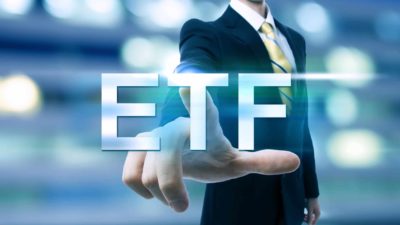Exchange-traded funds (ETFs) on the ASX can be a great way for investors to achieve diversification by gaining exposure to a whole range of businesses in one trade. Some ASX ETFs have, in my view, very good holdings.
Vanguard Australian Shares Index ETF (ASX: VAS) aims to track the S&P/ASX 300 Index (ASX: XKO), which consists of 300 of the biggest businesses listed on the ASX. It's the most popular ETF on the ASX, meaning it's the one with the most investor money.
But the ASX only accounts for 2% of the global share market. There are plenty of other high-quality international businesses that Aussies can get indirect exposure to through ASX ETFs.
So, with that in mind, here are two options I really like.
Vaneck Morningstar Wide Moat ETF (ASX: MOAT)
This ETF is focused on businesses in the US that have strong competitive advantages, or economic moats.
A competitive advantage can come in many different forms such as network effects, brand power, patents, cost advantages, and so on.
The Morningstar analyst team has created a list of businesses with competitive advantages expected to almost certainly endure for the next decade and, more likely than not, for the next two decades.
From that list, the analysts only add stocks to the ASX ETF portfolio if they believe the business is trading at a good price compared to what they think the business' underlying value is.
Past performance is not a guarantee of future results, but the MOAT ETF has done very well. Over the five years to 31 October 2023, it has delivered an average return per annum of 14.3%, outperforming the S&P 500 return of 13% per annum.
At the time of writing, the biggest three positions (all with weightings of less than 3%) were Walt Disney, Alphabet, and US Bancorp. It has 50 holdings at the time of writing.
VanEck MSCI International Quality ETF (ASX: QUAL)
This ASX ETF is about building a portfolio of 300 global names that rank well on three key fundamentals: a high return on equity, earnings stability, and low financial leverage.
In other words, they make good profit for how much shareholder money is retained within the business, profit doesn't typically fall much/often, and the balance sheets are strong.
While 77% of the portfolio is currently invested in the US – which isn't a surprise because of how big the market is – the portfolio has at least 1% exposure to countries including Switzerland (5.3%), Japan (3.4%), Denmark (3.3%), the Netherlands (2.5%), the UK (2.4%), Canada (1.3%), and France (1.1%).
This ASX ETF has also done well over the past five years, delivering an average return per annum of 14.2%. But, again, past performance is not a guarantee of future performance.
Currently, the positions with a weighting of more than 3% include Eli Lilly (3.05%), Meta Platforms (3.74%), Apple (4.99%), Microsoft (5.42%), and Nvidia (5.89%).









